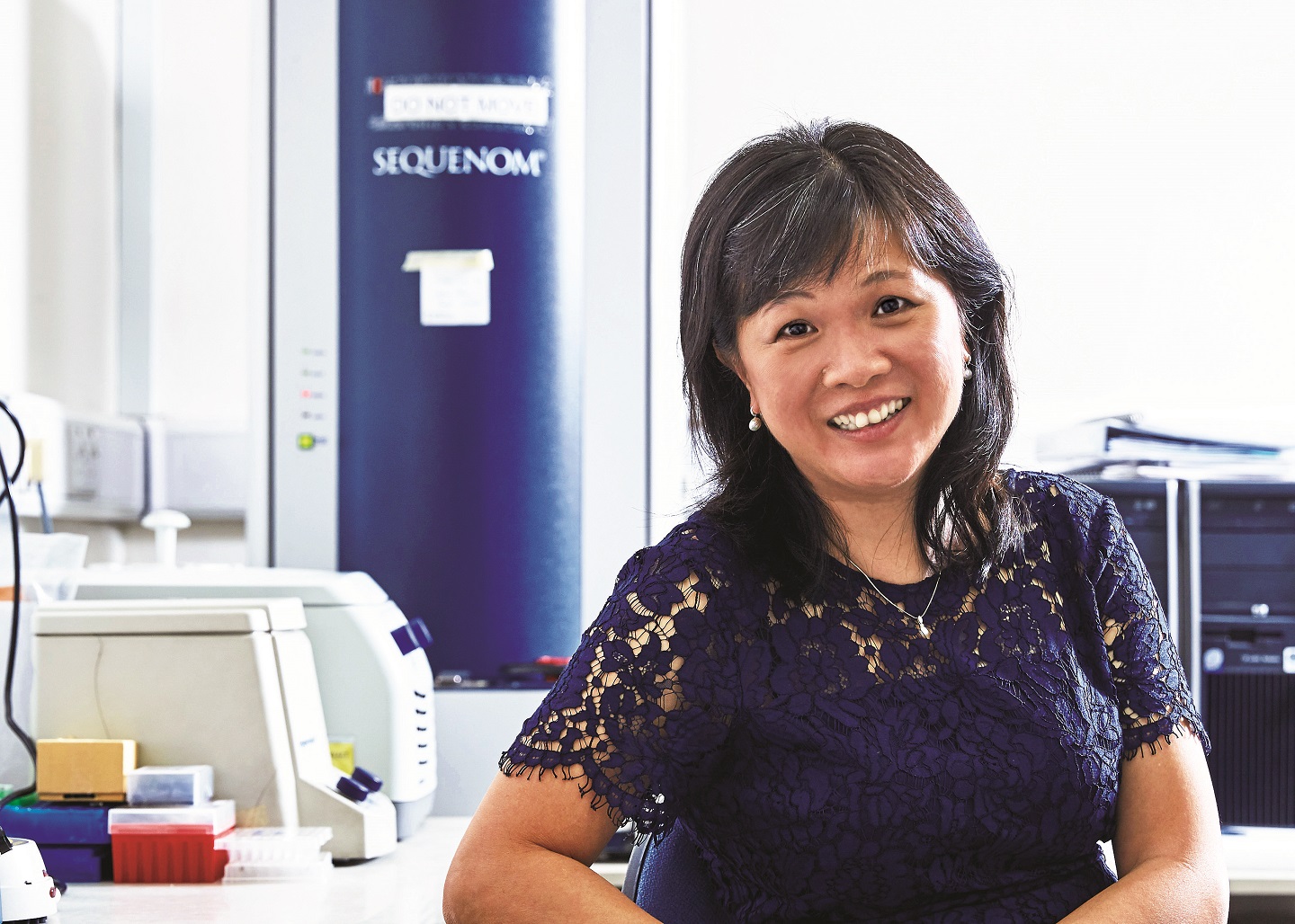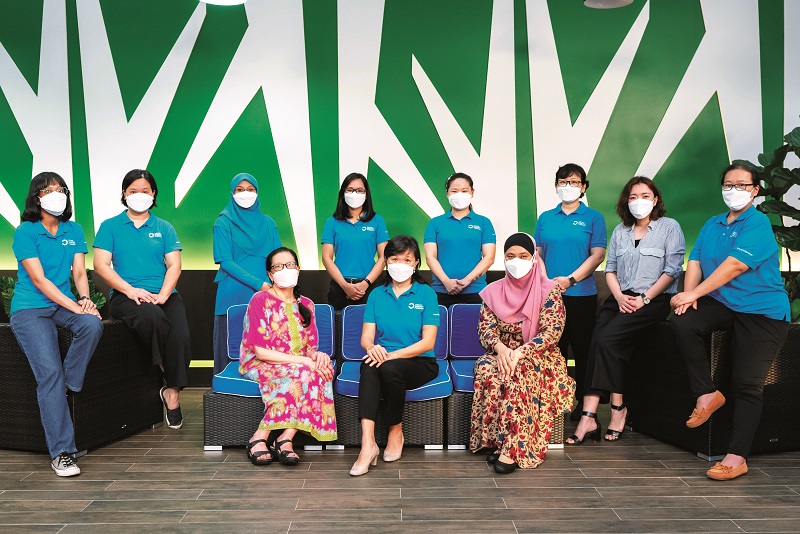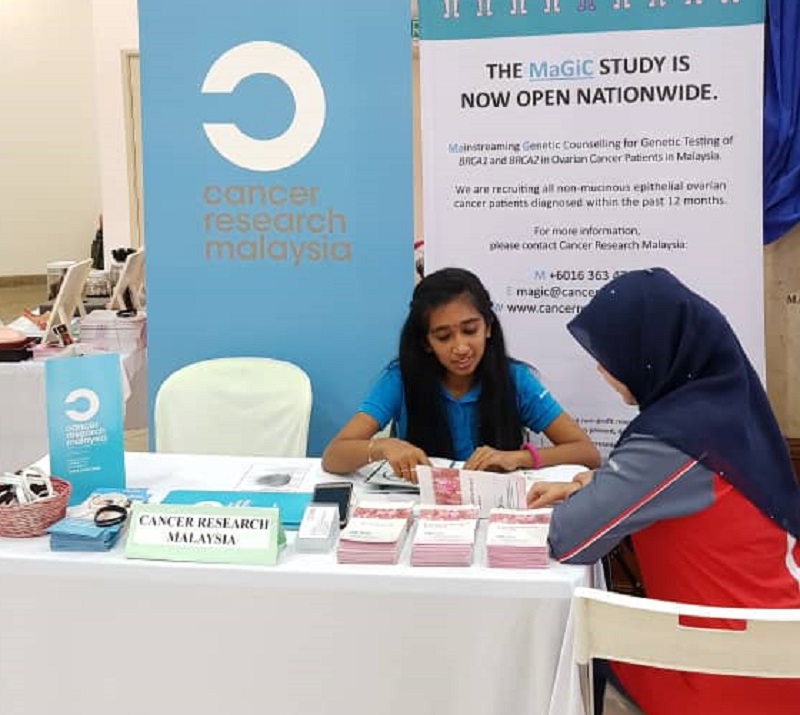
NGO Cancer Research Malaysia (CRMY) founder Professor Datin Paduka Teo Soo-Hwang (Photo: SooPhye)
Since its founding in 2001, breast cancer has been a major thrust for independent and non-profit organisation Cancer Research Malaysia (CRMY) and when its founder Professor Datin Paduka Teo Soo-Hwang was awarded an honorary Officer of the British Empire (OBE) by Queen Elizabeth II in 2018, she told Options about a one-of-a-kind risk calculator that would allow Asian women to properly determine their chances of fighting the disease.
Four years later — during which CRMY has gone from a national cancer research organisation to one with international reach — Teo is proudly able to announce that the risk calculator she and her team spoke about with such eagerness is now in existence and ready to be rolled out.
Created in collaboration with hospitals and universities in Malaysia, Singapore and the UK, ARiCa — Asian Genetic Risk Calculator — is a tool that enables women facing a breast cancer diagnosis to determine their likelihood of inheriting a faulty BRCA1 or BRCA2 gene (these are tumour suppressor genes that help keep breast, ovarian and other types of cells from growing and dividing too rapidly or in an uncontrolled way). ARiCa was developed based on a 20-year study of over 8,000 breast cancer patients in Malaysia and Singapore, which allowed CRMY to develop a tool to find out whether Asian women had an individual likelihood of being a faulty BRCA carrier.
“Using criteria such as age and the presence of family history of breast cancer, we estimate that each year, nearly 4,000 newly diagnosed breast cancer patients in Malaysia would need genetic counselling and testing, but they often don’t consider this test because most assume that they are unlikely to have inherited a faulty gene. With ARiCa, we can now give each woman their individual likelihood of being a BRCA carrier so that they can be empowered to make informed choices about their health and healthcare practitioners can provide more accurate treatment plans for their patients,” says Teo, who led the study.
The study that powers ARiCa was published in the prestigious New England Journal of Medicine last year and a follow-up study was published in Journal of Clinical Oncology in early February. “This is a very geeky thing to be proud of but in the scientific community, being published by top medical journals like NEJM and JCO is a huge milestone and a major turning point,” Teo says.
The drive to create the calculator was based on the inadequate number of women who were getting tested for the faulty BRCA gene, which translates to a lower level of awareness and action. When it comes to breast cancer, data shows that 1 in 25 patients inherit a faulty BRCA gene. But prior to this research, breast cancer patients would only be offered a test if they were diagnosed at a young age or had close relatives with breast or ovarian cancer. Thus, many gene carriers were not offered the genetic test, missing the opportunity to have life-saving treatments or for their close relatives to check out prevention strategies.
crmy_arica_press_release-5.jpg

For instance, American actress Angelina Jolie was able to ascertain her risk based on her family history — doctors estimated that she had an 87% chance of developing breast cancer and a 50% chance of developing ovarian cancer over the course of her lifetime — and therefore opted for a preventive double mastectomy that is likely to have prevented her from getting breast cancer. Granted, not everyone can afford expensive elective surgery or reconstruction like Jolie, but knowing what one’s risk factors are can go a long way in making more informed choices.
As Jolie’s example indicates, mutation prediction tools already exist and are reliable, but the majority of them are built for European women and are less accurate for women of Asian descent. As a result, Asian patients and their family members miss out on the opportunity to be aware of their genetic risk status, thereby losing the possibility of preventing cancer and selecting accurate treatment. Breast cancer has been the subject of much research over the years, so while the concept of a risk calculator in itself is not new, an Asian one is. Although establishing 90% accuracy rates for the faulty genes in European women, existing tools only register a paltry 22% effectiveness for Asian women.
“Western tools have accuracy rates of 90% for the Western population, but only 22% for Asians. Because of the New England paper, we had data from 16,000 women in Malaysia and Singapore, and the breast cancer patients’ data was what went into building ARiCa,” Teo says. “ARiCa is still the best tool available at present for the Asian population.
“European tools are not just unsuitable for Asian women, but also for the public healthcare scene in this part of the world,” Teo adds. “Those tools take on average 45 minutes to administer, which is time doctors may not have with patients here. ARiCa is custom-designed to work in local clinical settings, where healthcare professionals may have less time for patients due to prevailing issues.”
ARiCa’s bank of data is drawn from a multi-ethnic population of Malay, Chinese and Indian breast cancer patients, which ensures that the tool developed performs equally well across Asian ethnic subgroups. Naturally, as clinical trials begin, the more women whose data is entered into the system, the more accurate the calculator becomes. Training is ongoing now to equip doctors with the necessary skills to conduct critical conversations with patients that will empower them to make informed decisions for themselves and their families.
cancer_detection.jpg

“It changes the narrative from simply telling them that they are at risk to providing them with a number and context. Genetic testing is not cheap and you want to have a really good reason to opt for it — that is what we are providing,” she observes.
“We recently won a major international research grant to help us figure out whether women who have the necessary information would actually seek out genetic testing. If we offer a tool and no one makes use of it, it doesn’t change clinical services — you need to prove that developing the tool actually changes the outcome for patients.” This is, again, based on precedent in a national study led by CRMY — based on the information given to patients that faulty BRCA genes are an indication for ovarian cancer, the rates of genetic testing went up from 2% to 58% for ovarian cancer patients.
ARiCa also puts the research into action, which ties into CRMY’s objective of harnessing the work they do to improve the lives of patients. “We don’t just discover what this means for the population, but also focus on the translational side. That means we are taking the research, building the tools and incorporating [them] into clinical services, so eventually, it becomes a routine standard of care for all patients — that’s the goal.”
Once clinical trials are over, the calculator can then be expanded to be used by women throughout Malaysia, and in Asean. Cancer cannot yet be cured but if early prevention is the only way, ARiCa is the tool women in Asia need more than ever.
This article first appeared on Mar 14, 2022 in The Edge Malaysia.


